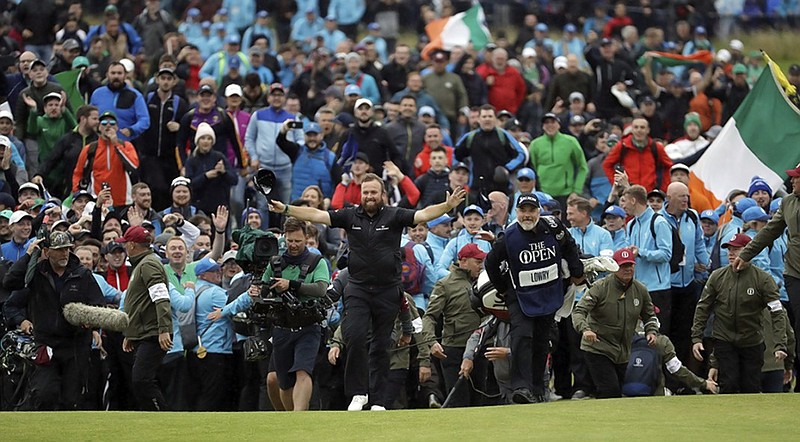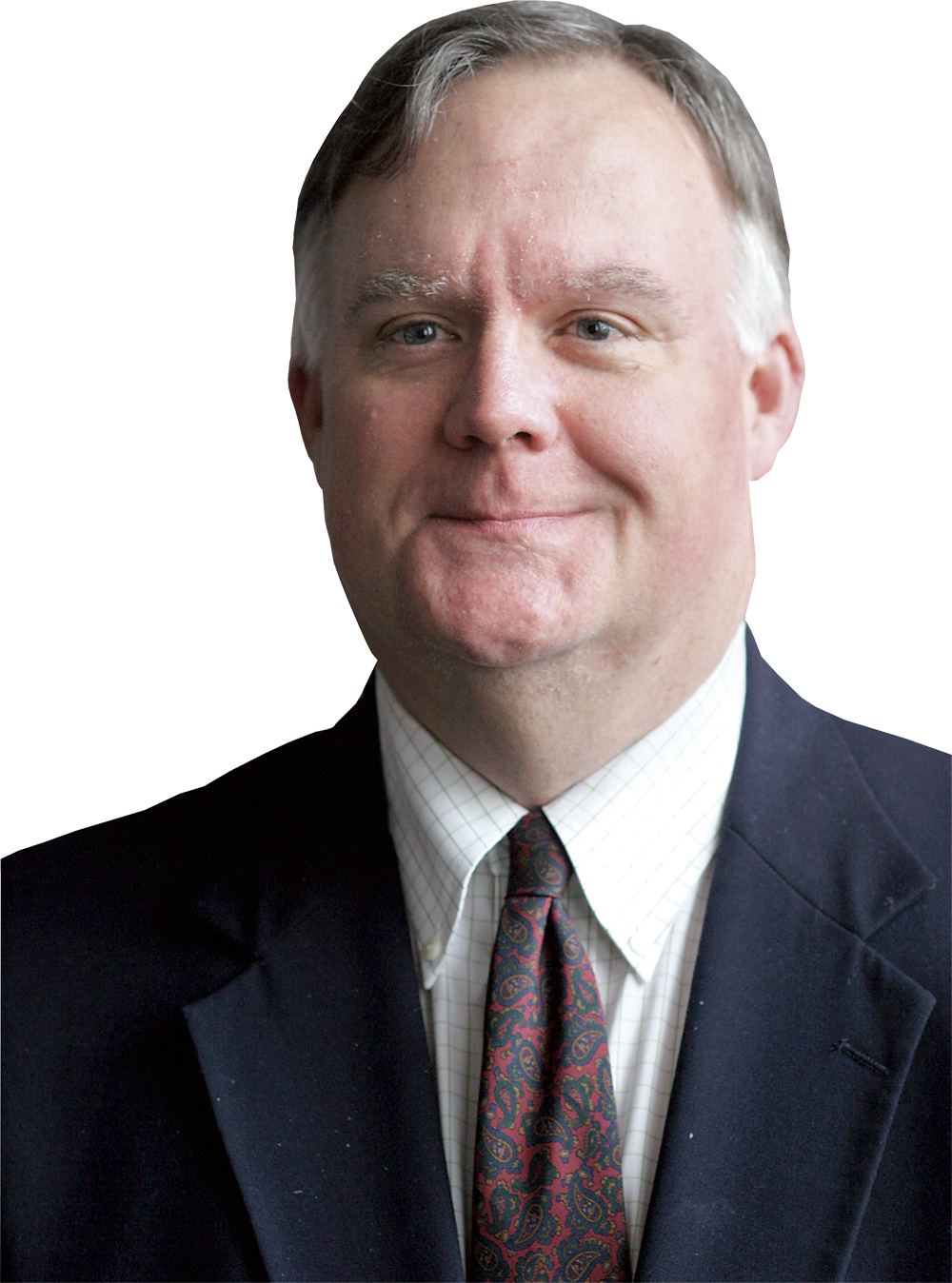It sounded a lot more like a World Cup soccer match than the final round of the Open Championship golf tournament.
From every corner of Royal Portrush Golf Club roared all of these orchestrated cheers and chants, most of them repeated over and over and over again, as so often happens at major soccer events.
Who could blame all those Irish men and women for wildly cheering native son Shane Lowry to victory atop the lush fairways and greens of the 131-year-old club, which was hosting the first British Open on Irish soil since 1951?
After all, the island of Ireland has been divided for decades, with more than 3,500 people having lost their lives due to political and religious divisions between the Republic of Ireland and Northern Ireland, which is home to Portrush.
As with most civil wars, "the Troubles"- as the four-decade conflict spanning the 1960s to 1998 was often labeled - had no singular flashpoint to explain its origin. It involved politics, religion, armies both recognized and underground. And if only in whispers and behind closed doors, one suspects the roots of that dark time still exist today in some homes and families within each country, much as reasons for the U.S. Civil War still simmer beneath the surface within some folks in this country.
But not this weekend in Portrush, most especially not on Sunday as Lowry somehow held it together against some of the worst weather imaginable to win by a preposterous six strokes over shaggy-haired Englishman Tommy Fleetwood.
As Lowry so simply yet eloquently said of his victory: "Everyone knows we're all one country when it comes to golf."
If sports - any sport, all sports - still does one thing better than almost any other activity, it is the uniting of disparate groups. It's often obvious with the World Cup or the Olympics, especially when a smaller nation's team or athletes succeed.
And Ireland - which counted a total of 8.85 million folks when combining the Republic of Ireland and Northern Island in 2016 - is one of those smaller lands, its justifiable pride in its centuries-old history nevertheless sometimes tempered by the deep wounds of The Troubles.
So Sunday at Royal Portrush was as much about reconciliation as a 32-year-old golfer earning his first major tourney title in his homeland. And when you think about it, there was an air of nationalism in all four of this year's majors, which were all won by those hailing from the country they were staged in.
Tiger Woods returned to glory at Augusta National in April. Brooks Koepka won the PGA Championship in May. Gary Woodland, a native of Topeka, Kansas, in our nation's heartland, captured our U.S. Open in June.
But none of them - not even a hugely emotional and refreshingly human Woods at the Masters - quite elevated a pride for country that Lowry's win seemed to, though the overwhelming exuberance regarding Tiger's return may have actually been greater, if possible.
Nor did you need to witness a very emotional Lowry to appreciate Ireland's joy the past four days.
Merely return to Friday, when Northern Ireland's Rory McIlroy let loose a few tears after his second-round 65 wasn't quite good enough to erase the damage done by an opening-round 79 in missing the cut.
Countryman Graeme McDowell, a PGA Tour veteran, told the New York Post of that effort: "(McIlroy) was wearing his heart on his sleeve, and he was laying it all out there coming in. And to watch him break down a little bit kind of felt like the tears in my eyes Thursday morning a little bit. I was on the first tee on Thursday wondering what the hell was wrong with me. But when I saw Rory [Friday] night, I understand it means a huge amount to us all. To show that raw emotion, to see how much it means to him, how much it means to all of us to bring this great tournament to Portrush."
Perhaps that's why Lowry also told NBC as he held the claret jug, "It's really tough to win in your home country."
Koepka's four wins in his past seven majors aside, it has become increasingly tough for anyone else in golf to dominate its four biggest tournaments. Twelve of the past 17 majors have been won by first-time champions, each with his own stirring story. Golf is truly an international sport, perhaps more so than ever, despite six Americans holding spots in the top 10 of the World Golf Ranking last week.
Thanks to the decision to move the PGA Championship from August to May, the majors are over for the year. Next up will be the Masters in April, with the spotlight almost assuredly on Woods, assuming he's again healthy enough to compete.
But folks rooting for Tiger are rooting for Tiger, not the Red, White and Blue. We're too big, too diverse, too individualistic for that. And that's OK. But what took place at Royal Portrush, an Irishman's dream come true, is OK, too.
Said McDowell to the New York Post: "It's great in sports when we see emotions, because sometimes these guys look like robots out there. We're not robots. We hurt, and we hurt a lot sometimes."
And sometimes a country that's been hurting a lot for a long time can unite, if only for a little while, by what one of its own does in sports. So while it's strangely charming the British Open winner is labeled "the championship golfer of the year," it might be just as fitting for the Republic of Ireland and Northern Ireland to crown Lowry their championship citizen of the year.
Contact Mark Wiedmer at mwiedmer@timesfreepress.com.

